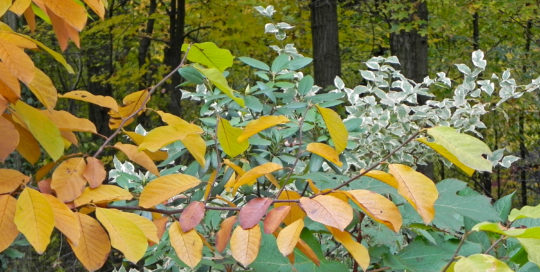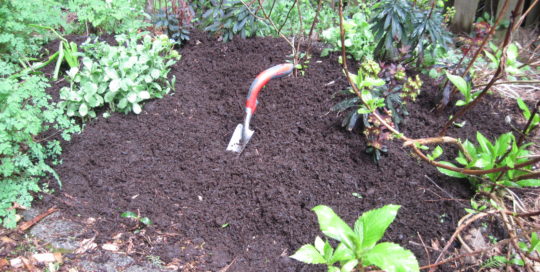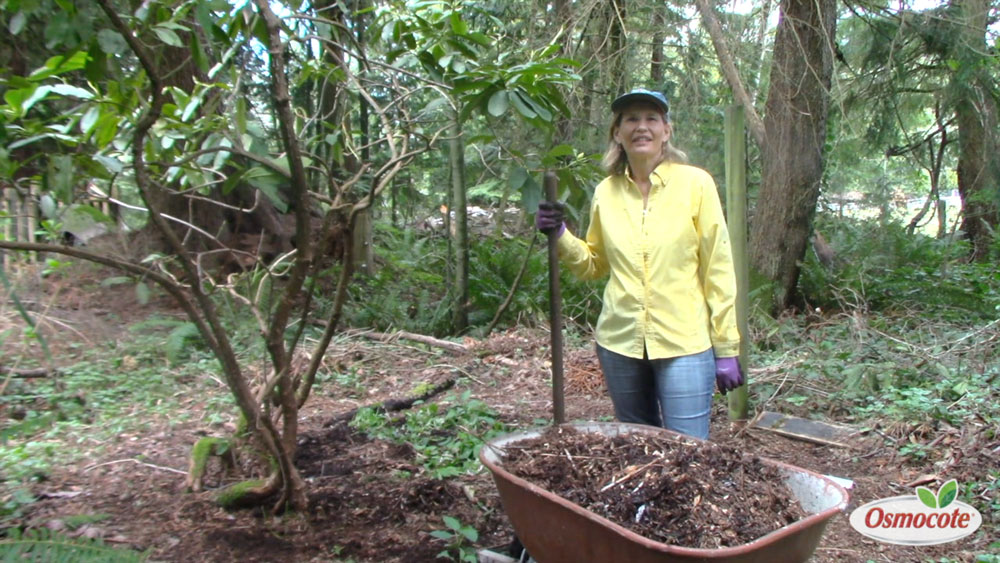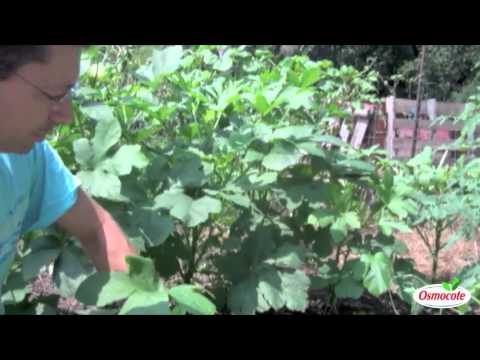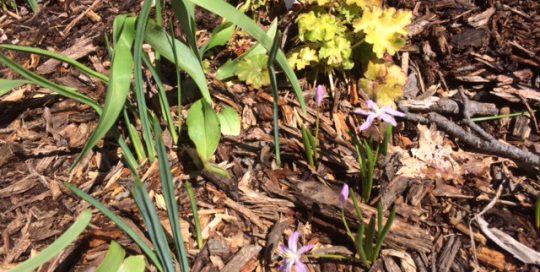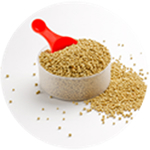Mulch as a place-saver
I created a few blank canvases in my garden in early October by digging out plants I no longer wanted. I’m not sure what I’ll do with these spots—turn them back to lawn, pave them with a walkway of some kind, or plant something else—but my decision can wait until spring. I covered the bare ground with cardboard, saved up and flattened out shipping boxes I get from my online orders of everything from shoes to garden implements. Then I dumped a generous two inches of cypress mulch over the top. In spring, when I figure out what I’ll be doing with that spot, I will at least not have to deal with weeds.
The Easiest Mulch
One of nature’s best mulches gets a plug by the Soil Society of America, which explains the role of snow and how it benefits soils in winter. Last winter, we saw really cold, windy weather arrive while our garden was vulnerable without its typical blanket of snow. The sequence of cold before snow did a number on some of my boxwood and a tree peony that were out in the open and unprotected by a snow cover.
When: Winter Mulch Timing
While our first instinct is to protect our plants with a thick blanket of mulch, hold that thought—until the ground freezes. Here’s why: mulching too early in the season will prevent plants from hardening off (that’s plant speak for toughening up) in order to withstand the winter. It’s best to wait until the ground has frozen, and mulch to regulate the temperatures, keeping the actions created by the freeze-thaw cycle from damaging plant roots. So how do we know when the ground has frozen? I’ve always considered Thanksgiving, or sometime in late November, the magic date. But there are other cues that tell you it’s okay to mulch.
According to the National Snow and Ice Data Center, University of Colorado, Boulder, ground can freeze anywhere from depth of 6 inches in the southern U.S. to 72 inches deep in the upper Midwest. The National Weather Service says that a hard freeze is possible when temperatures fall below 28°F or-lower for at least a few hours. It usually means that many types of plants and most seasonal vegetation will be destroyed. The best place to determine when your garden will experience a freeze is National Weather Service Frost and Freeze Information page.
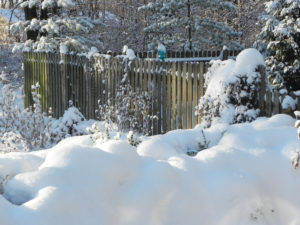
Related Blogs
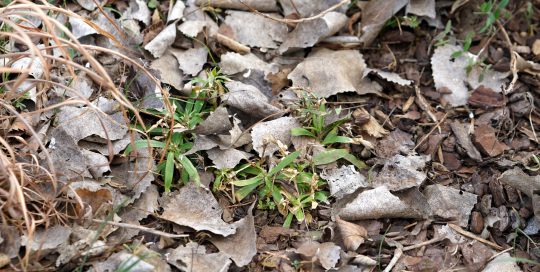
While potentially helpful to birds, mulching with leaves can cause a problem
Read this post

